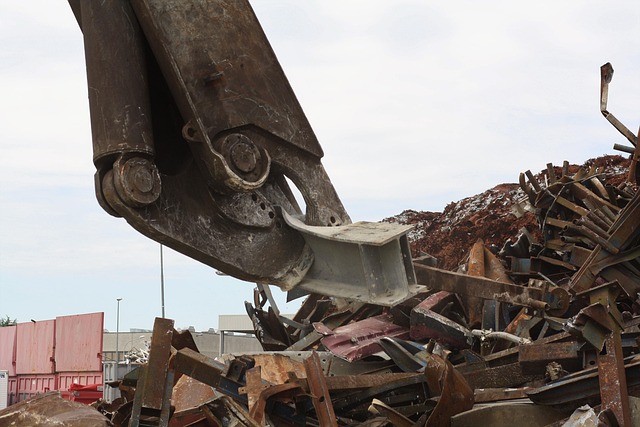Computer recycling Albany requires specialized software for secure data erasure and physical destruction methods like shredding to prevent data recovery. Reputable IT asset disposal companies offer both secure data destruction and e-cycling services, adhering to privacy regulations and promoting environmental sustainability in the Capital Region. Choosing certified providers ensures complete data obliteration, transparent reporting, and contributes to a circular economy by recycling electronic waste components responsibly.
Secure data destruction is an essential aspect of protecting sensitive information in today’s digital age. With strict privacy laws and increasing cyber threats, ensuring that data is permanently erased before disposal is crucial. This article explores various data destruction methods, emphasizing the importance of professional services like computer recycling Albany, which offer secure eradicating options. We’ll guide you through compliance considerations, legal implications, and best practices to help organizations make informed decisions regarding their data disposal.
- Understanding Data Destruction Methods
- The Role of Computer Recycling Albany
- Ensuring Secure Data Eradication
- Compliance and Legal Implications
- Selecting Reputable Data Destruction Services
- Best Practices for Data Disposal
Understanding Data Destruction Methods

Understanding Data Destruction Methods
When it comes to secure data destruction services, especially through computer recycling Albany residents can trust, different methods ensure complete data sanitization. The first step in this process involves deleting all data from devices using specialized software designed to overwrite or wipe hard drives, solid-state drives, and other storage media. This method, often referred to as degaussing or secure erasing, leaves no trace of original data, making it ideal for sensitive information.
Following initial deletion, many reputable local IT asset disposal companies employ physical destruction techniques such as shredding or crushing. These methods ensure that even if a device falls into the wrong hands, data remains unrecoverable. For businesses looking to recycle computers and phones locally, choosing a responsible vendor who offers both secure data destruction and proper electronic recycling drop off services is crucial. This not only protects their data but also contributes to a more sustainable future by ensuring hazardous materials are handled and recycled properly.
The Role of Computer Recycling Albany

Computer Recycling Albany plays a vital role in ensuring the responsible and secure data destruction of electronic devices. With the ever-growing reliance on technology, it’s crucial to have a local solution for safely disposing of outdated IT equipment. The process involves specialized methods to wipe all data traces, preventing unauthorized access to sensitive information. This service is particularly important for businesses looking to maintain compliance with privacy regulations and protect their clients’ data.
Albany’s recycling centers offer more than just disposal; they provide an eco-friendly approach by repurposing electronic waste. These facilities ensure that devices are broken down into their components, allowing for the recovery of valuable materials while securely destroying the hard drives and other storage devices. By utilizing local IT equipment collection points, businesses and individuals can contribute to sustainable practices while ensuring their data is permanently erased.
Ensuring Secure Data Eradication

When it comes to securing sensitive data, proper destruction is non-negotiable. This is where reputable services for secure data erasure come into play, especially when utilizing computer recycling Albany programs. These professionals employ advanced techniques like physical destruction and data wiping to ensure no trace of your information remains on devices. By partnering with them, individuals and businesses can rest assured that their data is handled responsibly and in compliance with privacy regulations.
Beyond data protection, local IT equipment collection points offer eco-friendly solutions through e-cycling programs near me and throughout the Capital Region. These initiatives promote a circular economy by recycling materials from old tech rather than relying on harmful disposal methods. With responsible e-cycle programs, you can contribute to environmental preservation while securely disposing of outdated computer hardware.
Compliance and Legal Implications

In today’s digital age, where data security is paramount, ensuring proper data destruction goes beyond technical prowess; it navigates the complex landscape of legal compliance and regulations. Businesses in Albany, New York, must adhere to stringent laws, such as those governing computer recycling, to safeguard sensitive information from falling into the wrong hands. Failure to comply can result in hefty fines and reputational damage, underscoring the critical importance of engaging specialized secure data destruction services.
When opting for e-waste management for businesses in Albany or considering eco-conscious tech disposal methods, it’s crucial to understand that this process extends beyond simply erasing digital files. It involves the responsible recycling and disposal of electronic equipment, including laptops, servers, and other devices, ensuring no remnants of data remain. By implementing these strategies, businesses can contribute to a sustainable e-cycle approach while mitigating legal risks associated with improper data destruction.
Selecting Reputable Data Destruction Services

When considering secure data destruction services, especially for computer recycling Albany, it’s crucial to select a reputable provider who understands the implications of data security and environmental sustainability. Look for companies that specialize in both secure data erasure and eco-friendly e-waste disposal nearby. Ensure they follow industry best practices and certifications, such as NAID (National Association for Information Destruction) or ISO 14001 for their e-cycle old laptops responsibly programs.
Reputable data destruction services not only guarantee the complete obliteration of sensitive information but also offer transparent reporting to confirm the successful deletion. Additionally, these companies often provide a range of services beyond computer recycling Albany, including secure document shredding and media destruction, making them comprehensive solutions for all your data security needs. Opting for eco-friendly electronic recycling solutions not only protects personal and corporate data but also contributes to sustainable practices.
Best Practices for Data Disposal

When it comes to secure data destruction, especially through computer recycling Albany services, following best practices is paramount. The first step in responsible data disposal is ensuring all digital media are securely erased or destroyed. This includes not just hard drives but also optical media, flash drives, and mobile devices. Many reputable companies offer data shredding services that guarantee the complete destruction of your hardware.
In addition to secure erasure, the best ways to dispose of old electronics involve recycling options for broken gadgets. Computer recycling Albany programs often accept a wide range of electronic waste, from computers and phones to tablets and gaming consoles. These local initiatives not only help in reducing e-waste but also ensure that valuable materials like gold, silver, and copper are reused, promoting sustainable practices in the tech industry.
When it comes to securing your data, proper destruction is paramount. By understanding various data destruction methods and their effectiveness, organizations can make informed decisions. Computer recycling Albany services play a vital role in ensuring secure data eradication while adhering to legal compliance standards. When selecting a provider, prioritize reputable companies that follow best practices for data disposal. This comprehensive approach safeguards sensitive information and minimizes risks associated with data breaches.














